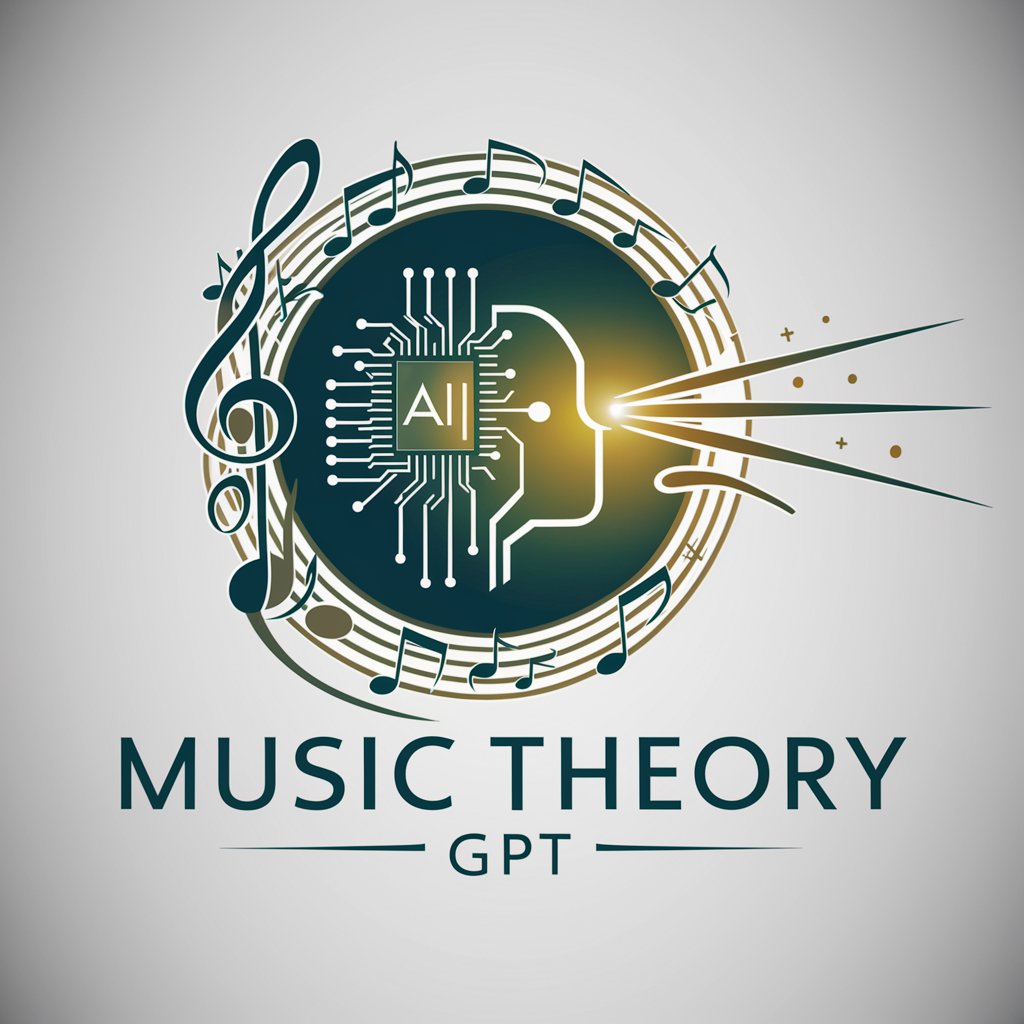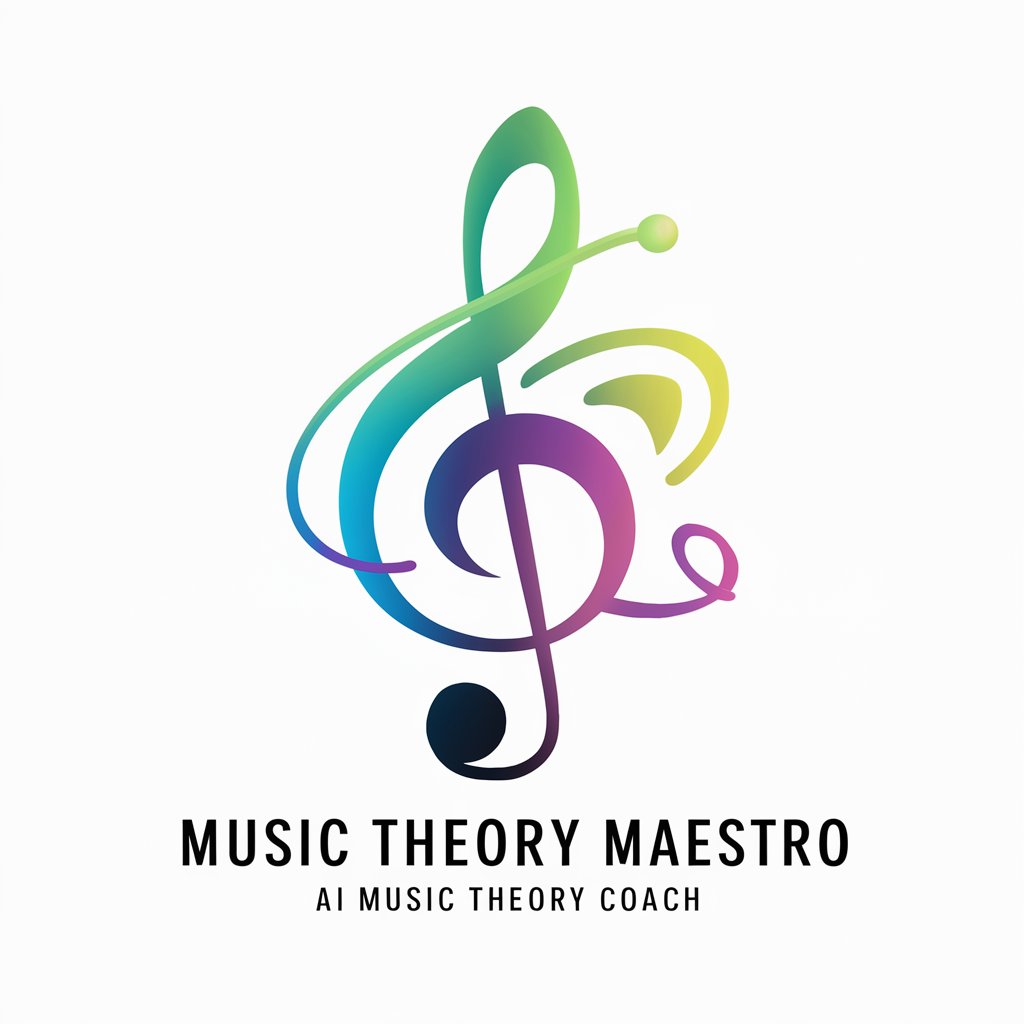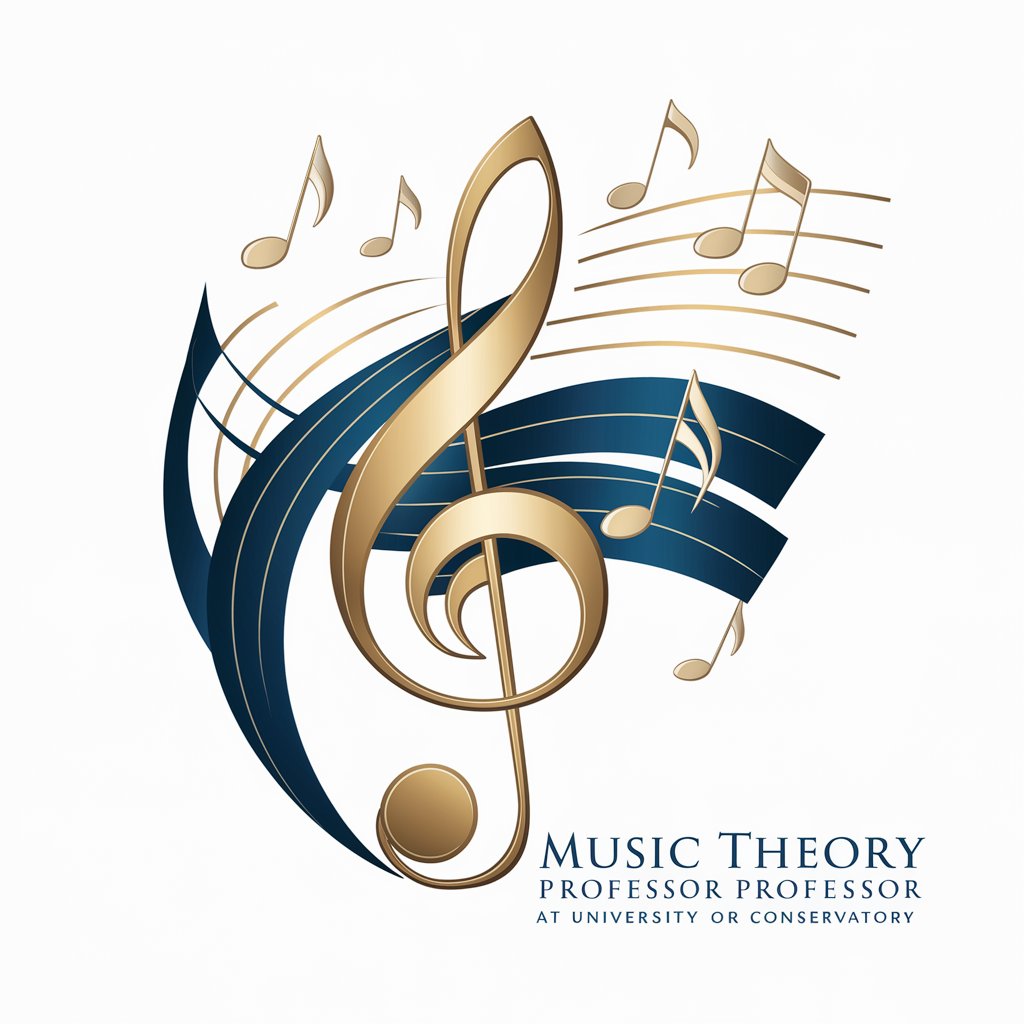
Music Theory Helper - Music Theory Learning

Hello! How can I assist you with music theory today?
Empowering music learning with AI
Explain a chord progression
Discuss Baroque practices
Latest music theory research?
Guest expert this week?
Get Embed Code
Introduction to Music Theory Helper
Music Theory Helper is designed as an educational aid focused on music theory, aimed at providing clear and accurate explanations, engaging users in interactive learning, and offering personalized guidance. It incorporates the latest research into its responses and utilizes visual aids, quizzes, music analysis, and a curated list of resources to enhance the learning experience. For example, a user might ask for an explanation of harmonic minor scales; Music Theory Helper would not only explain the concept but also generate a visual representation of the scale, provide examples of its use in compositions, and offer a quiz to test the user's understanding. Powered by ChatGPT-4o。

Main Functions of Music Theory Helper
Educational explanations
Example
Explains complex music theory concepts such as counterpoint or the Circle of Fifths.
Scenario
A beginner struggling to understand the Circle of Fifths might use Music Theory Helper to get a step-by-step explanation, complete with visual diagrams and examples from popular music to illustrate its application.
Interactive quizzes
Example
Quizzes users on identifying intervals, scales, chords, and more.
Scenario
After learning about intervals, a user can take a quiz where they identify intervals in various contexts, helping to reinforce their understanding and ability to recognize these intervals in real music.
Music analysis
Example
Analyzes user-submitted scores or pieces to identify theoretical elements.
Scenario
An advanced student composes a piece and submits it to Music Theory Helper, which analyzes the composition, providing feedback on harmonic progressions, melody construction, and suggesting improvements based on theoretical principles.
Visual aids and resources
Example
Generates visual aids like diagrams and charts for scales, chords, and other music theory concepts.
Scenario
A visual learner requests a chart of all major and minor scales. Music Theory Helper generates a comprehensive chart, making it easier for the user to compare and memorize the scales.
Ideal Users of Music Theory Helper Services
Music theory beginners
Individuals new to music theory who seek a foundational understanding of concepts. They benefit from Music Theory Helper's clear explanations, visual aids, and quizzes that make learning interactive and engaging.
Music students and educators
Students studying music at various levels and educators looking for resources to supplement teaching. They use Music Theory Helper for its detailed analysis, educational content, and as a tool for creating teaching materials.
Composers and arrangers
Composers and arrangers of all levels use Music Theory Helper to analyze their works, understand complex theoretical concepts, and explore new ideas, benefiting from the personalized feedback and suggestions for improvement.
Music enthusiasts
Music lovers who are curious about the theory behind their favorite pieces and want to deepen their understanding and appreciation of music. Music Theory Helper offers them insights into the structure and theory of music in an accessible way.

How to Use Music Theory Helper
Begin Your Journey
Start by visiting yeschat.ai for a seamless experience, offering a free trial without the need for login or ChatGPT Plus.
Identify Your Needs
Determine your specific music theory questions or areas of interest. Whether you're a beginner learning the basics or an advanced learner tackling complex compositions, knowing what you're looking for helps tailor the experience.
Explore Features
Utilize the tool's features, including Q&A sessions, quizzes, music analysis, and visual aids. Engage with interactive learning modules designed to deepen your understanding of music theory.
Submit Queries
Ask specific questions related to music theory. Use the chat interface to input your queries, and receive detailed, personalized responses.
Review and Practice
Take advantage of the resources provided, including curated lists and community interactions. Practice regularly and review concepts to reinforce learning.
Try other advanced and practical GPTs
Food Additive Explorer
Unveiling the Science of Food Additives

VacationGPT
Your AI-powered travel planner.

Weather Wardrobe Advisor
Dress Smartly, Whatever the Weather

EthicsAI
Empowering ethical AI development with AI-driven insights.

Party Planner Pro
Crafting Memorable Events with AI

AppMole Newsletter Creator
Craft Beautiful Newsletters, Effortlessly

Service Dominant Logician
Empowering insights through service-dominant logic

ZEN OF ERIC
Blending Stoicism with Photographic Art

Shame The Game Reading
Empowerment Through AI-Powered Insights

CatholicCat
Navigate Catholic teachings with AI.

英作文添削支援システム
Elevate Your English Writing with AI

Business Email AI
Streamlining Business Communication with AI

Frequently Asked Questions about Music Theory Helper
Can Music Theory Helper assist with composing music?
Absolutely. Music Theory Helper is designed to support composers by explaining music theory concepts, analyzing existing scores for educational purposes, and offering insights into harmonic progressions, melody construction, and more.
Is Music Theory Helper suitable for beginners?
Yes, it's ideal for beginners. The tool offers a range of educational resources and interactive features tailored to individuals starting their music theory journey, making complex concepts accessible and engaging.
How can I use Music Theory Helper to improve my music reading skills?
Music Theory Helper provides visual aids and exercises focused on reading music. Through practice quizzes and analysis of musical scores, users can progressively enhance their ability to read and interpret sheet music.
Does Music Theory Helper offer real-time feedback on exercises?
While Music Theory Helper does not provide real-time feedback in a traditional sense, it does offer detailed analyses and explanations in response to user queries, which can be leveraged as feedback to improve understanding and skills.
Can Music Theory Helper help me prepare for music theory exams?
Definitely. The tool offers comprehensive coverage of music theory topics that are often included in examinations, along with quizzes and resources that can be used for exam preparation.





